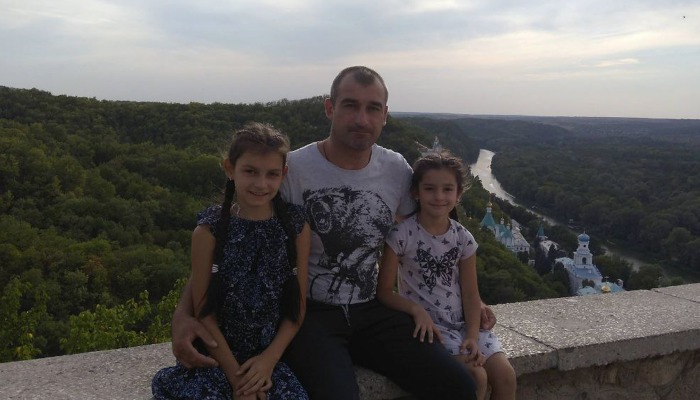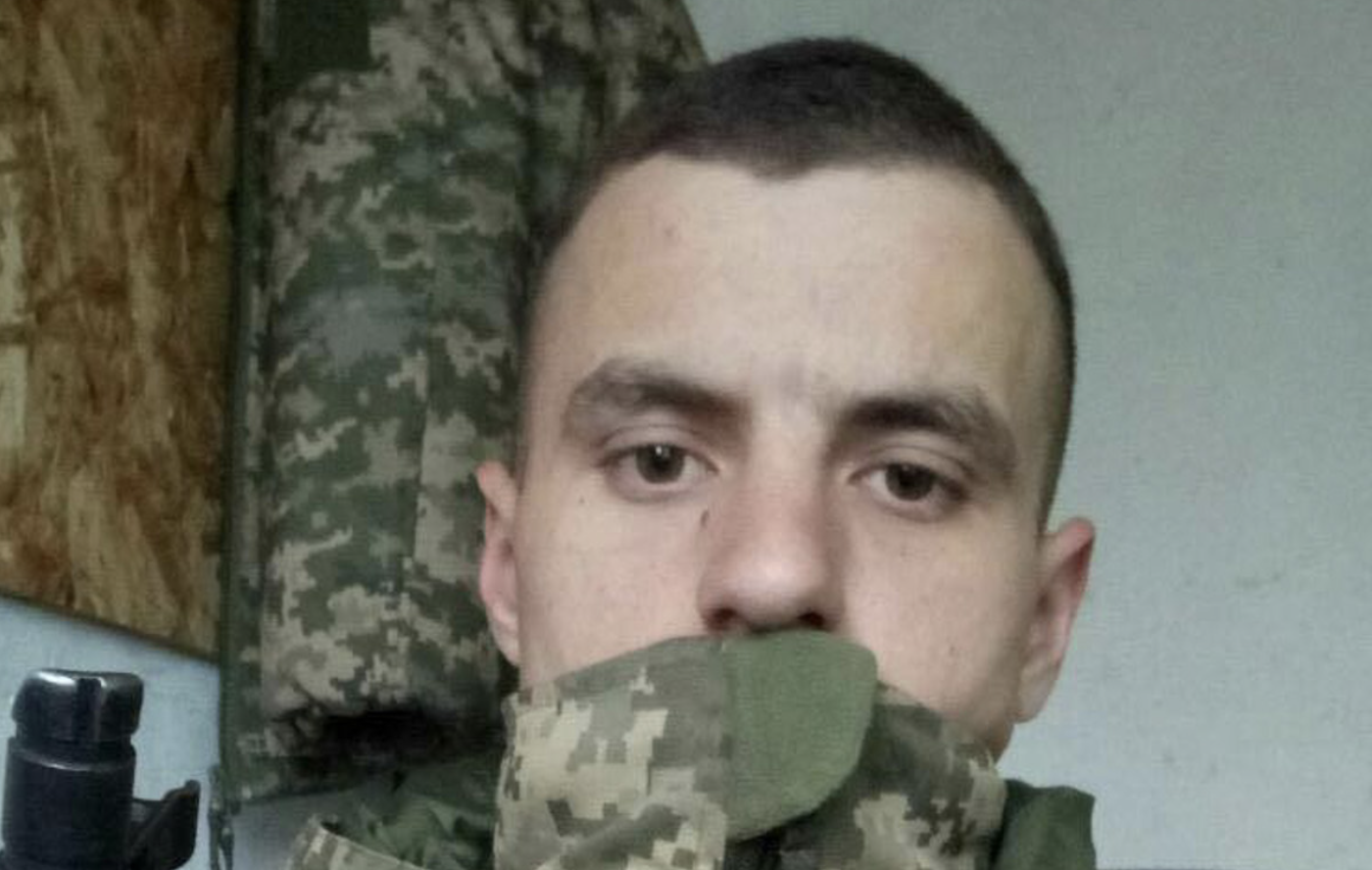A soldier and the wife of a tortured fighter revealed the inhumane conditions faced by prisoners in a colony in Russia.
The medical examination established that the cause of death of Ukrainian defender Vladimir Mishchenko in Russian captivity was severe body exhaustion, muscle atrophy, and bilateral purulent pneumonia, resulting from the conditions of his detention.
The treatment of prisoners in Russia was reported to the publication Slidstvo.Info by the wife of the deceased, Victoria Mishchenko, and defender Vladimir Miroshnichenko.
 Vladimir Mishchenko with his daughters
Vladimir Mishchenko with his daughters Before the full-scale war, Vladimir Mishchenko lived with his family in Myrnohrad, Donetsk region.
From 2017 to 2020, he served in the Armed Forces of Ukraine under contract. After completing his service, he worked in a mine for a year, but later returned to duty as a paramedic driver in a hospital in Pokrovsk.
Vladimir was in Mariupol when the full-scale invasion began, so he urged his family to leave, understanding the danger, which they did. He managed to stay in touch with his wife until March 10, when he called for the last time and said: “Start a new life, and I will definitely find you”. After that, there was no further communication, and the only information Victoria received about her husband came from videos of Ukrainian prisoners.
At the end of August 2022, the woman received a brief letter: “They feed us, and the treatment is good. Take care of the kids, wait for me, and I will definitely find you.” Throughout 2023, she received only two formal confirmations from the Red Cross that Vladimir was alive and held in Russian captivity. There was no information regarding his health condition.
 Vladimir Miroshnichenko
Vladimir Miroshnichenko In February 2024, Victoria received more information from a soldier of the 36th separate marine brigade, Vladimir Miroshnichenko, who had spent almost a year in a cell with her husband in Borisoglebsk Colony No. 9.
According to him, Mishchenko lost 40 kilograms, weighing only 63 kilograms at nearly two meters tall. In the colony, the Russians provided the prisoners with poor food, which was often received with significant delays. The prisoners were tortured, threatened with dogs, and beaten with electric shockers and rubber batons.
“It was terrifying there. One prisoner rotted alive, another had a knife shoved in his mouth, cutting his cheek, and another was gassed in the mouth; they even made some guys sit on sticks,” Miroshnichenko recalls.
Russian guards forbade them to look up at their faces and did not allow them to raise their heads even during walks. Despite this, Vladimir managed to count about a hundred prisoners who were kept in a punishment isolation cell. Miroshnichenko was exchanged and returned to Ukraine on January 31, 2024.
“I truly believed that I would be exchanged. Every day, I waited to be woken up at night and taken for an exchange. We supported each other there because some wanted to suffocate, hang themselves, or cut their veins. The Russians even provided us with blades,” he shared.
In the summer of 2024, investigators informed Victoria that the Russians would return her husband's body. His brother and cousin went for identification. At that time, forensic experts reported that Mishchenko had died in the colony due to cachexia and bilateral purulent pneumonia.
Numerous testimonies from returned Ukrainian prisoners confirm the inhumane mistreatment, torture, and abuse that Ukrainians endure in Russian captivity. Human rights activists note that this constitutes a violation of international legal norms regarding the treatment of captured combatants.
It is worth reminding that Mariupol defender Andriy returned from Russian captivity, where he spent 20 months. He was a witness to the terrorist attack in “Yelenovka,” and he and other prisoners of war and civilians were also brutally tortured in Borisoglebsk pre-trial detention center No. 2 in the Voronezh region.